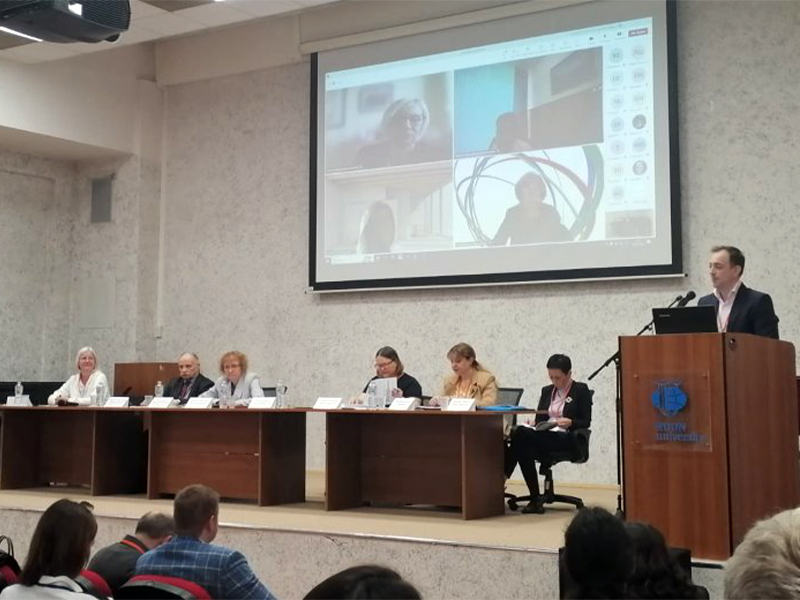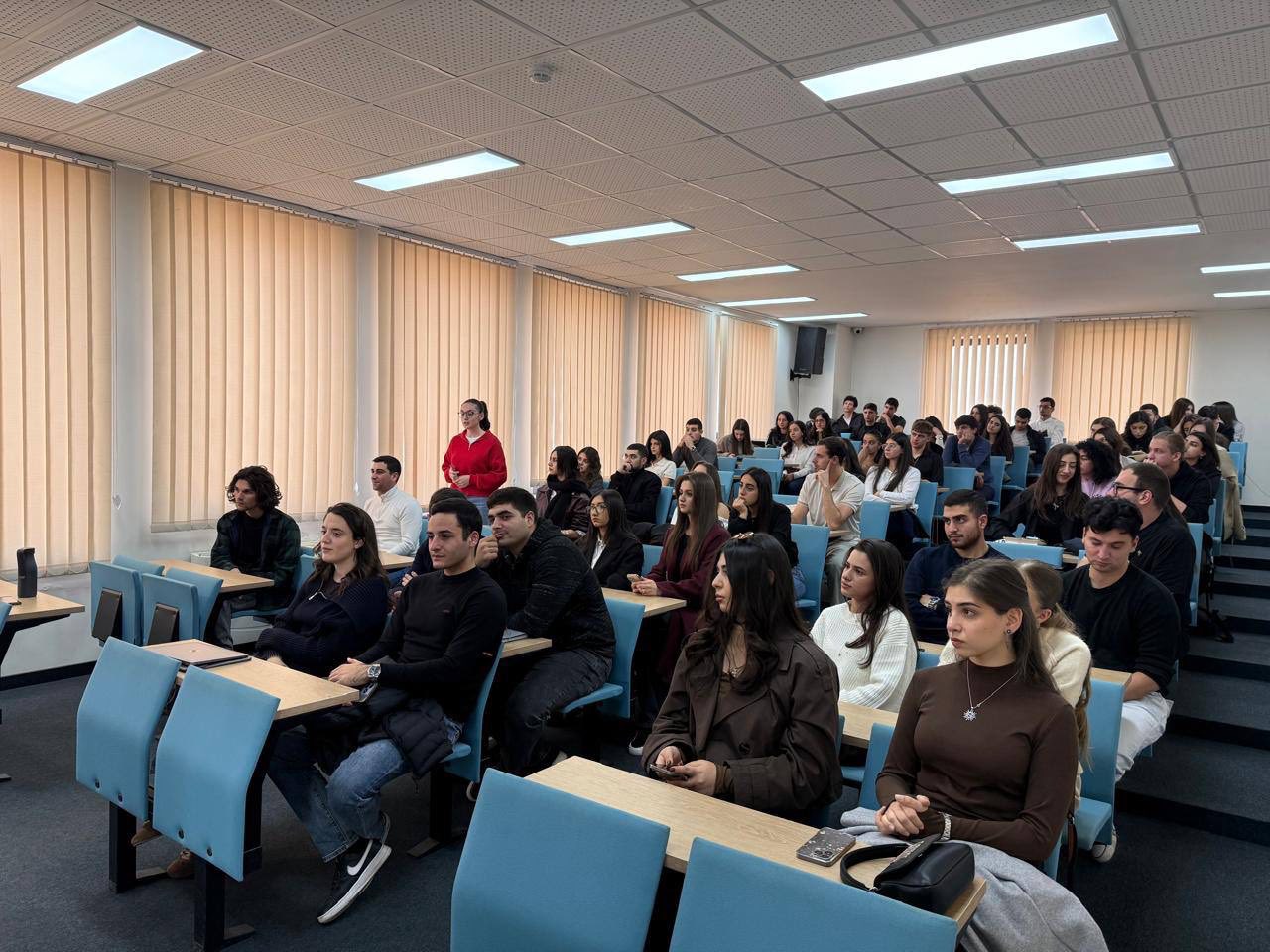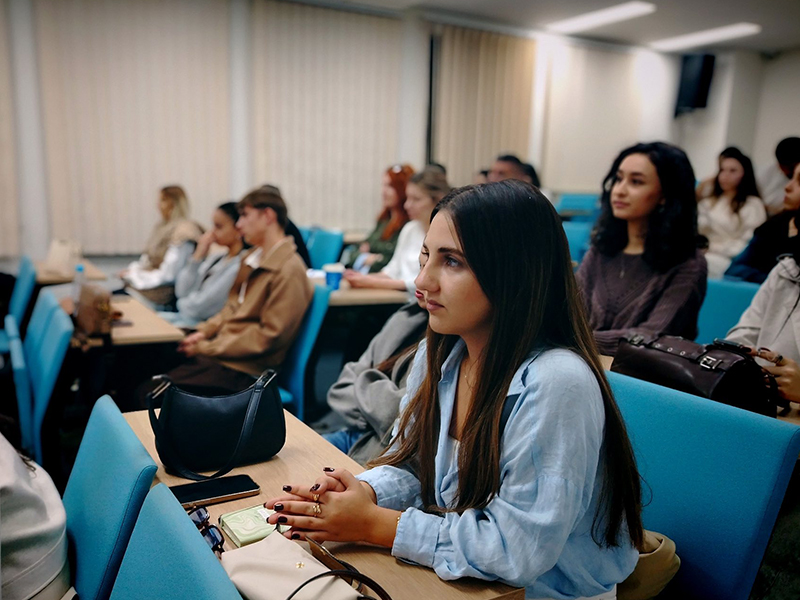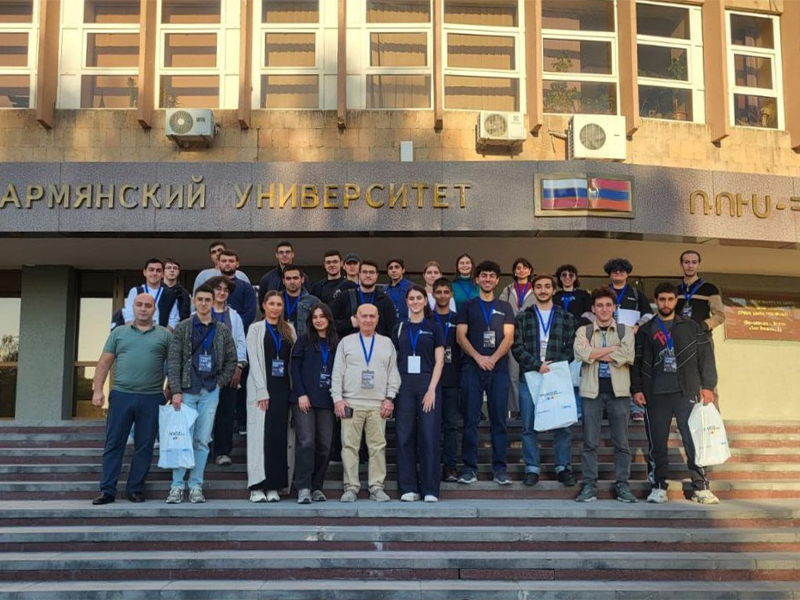
- 17 May
- 2024
RAU and RUDN held an International Scientific and Practical Conference on Psychology
The International conference “Personality in the Modern Society: Research, Education, and Development” was dedicated to the 85th birth anniversary of Alexander Krupnov.
Russian-Armenian University together with the Patrice Lumumba People’s Friendship University of Russia (RUDN) co-organized an International scientific and practical conference “Personality in the Modern Society: Research, Education, and Development” dedicated to the 85th birth anniversary of Doctor of Psychology, Professor, Honored Worker of Higher Education of the Russian Federation, Honored Professor of the P. Lumumba University Alexander Krupnov. The International conference was held at the RUDN on April 25. Head of the RAU Department of Psychology, Doctor of Psychology, Professor Asya Berberyan welcomed the participants by expressing her gratitude to the organizers, RUDN Rector Oleg Yastrebov, Dean of the Department of Philology Viktor Barabash, Head of the Department of Psychology and Pedagogy Yevgeniy Bashkin, Associate Professor Irina Novikova, for the opportunity to take part in the event.
 “In my view, the specific feature of the conference is, first of all, the relevance of the study of personality problems in modern society, and secondly, the emphasis of the practical significance of the problem that is based on fundamental theoretical knowledge. And it is important that the event is dedicated to the 85th birth anniversary of Alexander Krupnov who made a significant contribution to personality psychology. He developed and completed the system approach to the personality study from the position of “integral variable of personality and individuality”. This approach is based on the concept that studies the general basis of human personality. This position opens up prospects in the study of knowledge of the strengths and weaknesses of personal qualities, their essence, and psychological mechanisms of influence on various components, which forms the prerequisites and basis for the creation, development, and correction of scientifically proven methods and technologies. It emphasizes the importance of this scientific event. The experience of holding a competition of poster student reports in nominations is also interesting,” shared A. Berberyan.
“In my view, the specific feature of the conference is, first of all, the relevance of the study of personality problems in modern society, and secondly, the emphasis of the practical significance of the problem that is based on fundamental theoretical knowledge. And it is important that the event is dedicated to the 85th birth anniversary of Alexander Krupnov who made a significant contribution to personality psychology. He developed and completed the system approach to the personality study from the position of “integral variable of personality and individuality”. This approach is based on the concept that studies the general basis of human personality. This position opens up prospects in the study of knowledge of the strengths and weaknesses of personal qualities, their essence, and psychological mechanisms of influence on various components, which forms the prerequisites and basis for the creation, development, and correction of scientifically proven methods and technologies. It emphasizes the importance of this scientific event. The experience of holding a competition of poster student reports in nominations is also interesting,” shared A. Berberyan.
As the professor emphasized, RAU and RUDN are connected by long-lasting and fruitful cooperation that has become traditional. It includes the co-organization of scientific events, mutual studies, and this conference will become another impetus to the future development of productive interaction.
The conference program was very eventful and diverse as evidenced by its scientific directions: modern theoretical and methodological approaches to the study of personality and individuality, the formation and development of a professional’s personality in a multicultural environment (together with the Samara branch of Moscow State Pedagogical University), personality and digitalization, self-realization of personality in modern society, psychological well-being and mental health of the individual, etc.
The conference program was very eventful and diverse as evidenced by its scientific directions: modern theoretical and methodological approaches to the study of personality and individuality, the formation and development of a professional’s personality in a multicultural environment (together with the Samara branch of Moscow State Pedagogical University), personality and digitalization, self-realization of personality in modern society, psychological well-being and mental health of the individual, etc.
Head of the RAU Department of Psychology Asya Berebryan presented a report “Emotional Intelligence and Life-purpose Orientations as Competence Factors of a Humanistic Pedagogue.” In her words, the main landmarks of the humanistic educational paradigm are person-centered education and recognition of the self-worth of an individual.
“The mastery of key competencies is important for professional and personal development of a teacher. Knowledge and skills do not always equip the teacher with the necessary information for teaching activities, while competencies provide the teacher with the opportunity to find existential meaning in the process of solving personal and professional problems. Emotional intelligence, the ability to recognize one’s emotions and those of other subjects of educational activity, the quality of teaching and educational work, determination, motivation, initiative, non-standard thinking of students and the educational process atmosphere are what the life-purpose orientations of the teacher depend on.”
While speaking about the empirical study carried out with teachers, the professor assured that the proposed hypothesis was partially verified. The analysis of the modern educational system confirms that nowadays the system of advanced training can no longer perform its traditional functions only; it should be of innovative and proactive nature and define the content of teacher training so that positions towards the development of professional competence alter, where the key components will be the life orientation of the teacher and their humanistic values.
It should be noted that the implementation of this event as a joint scientific project for the development of the scientific potential of researchers also contributes to the preservation of the mutual scientific and cultural space of Russia and Armenia, the formation and development of scientific and educational ties between our friendly countries.
Translated by Aykanush Karabekyan,
I year Master’s Student in Translation & Interpretation, RAU
I year Master’s Student in Translation & Interpretation, RAU








